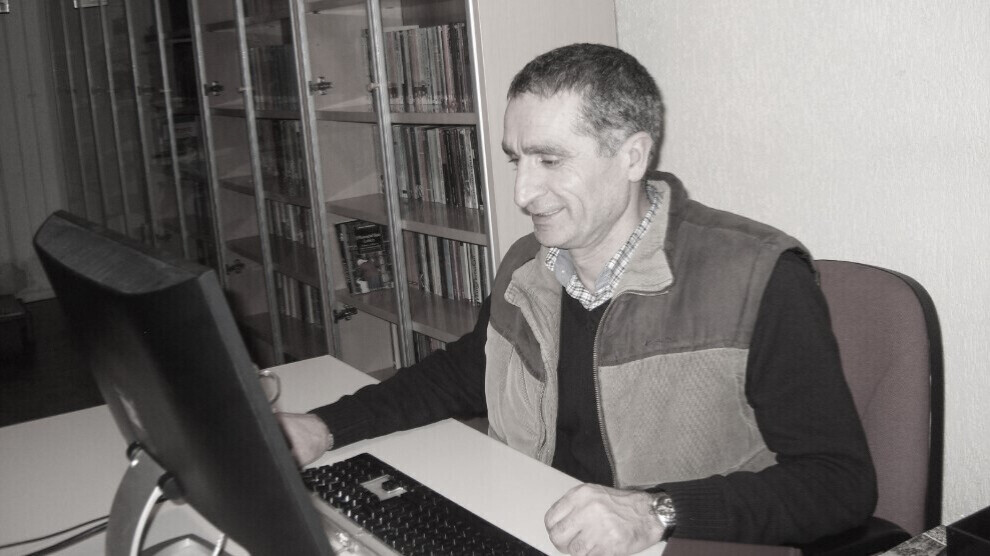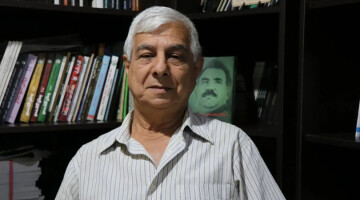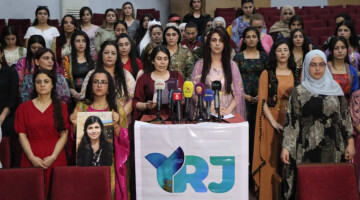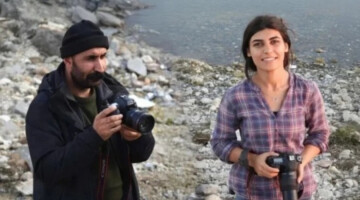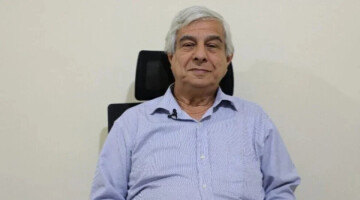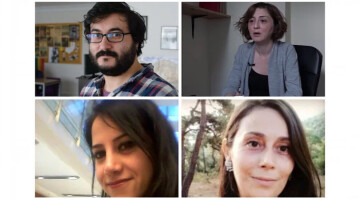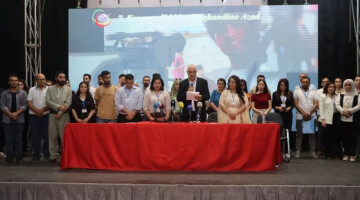Kurdish journalist Serdar Karakoç was arrested in the Netherlands on 23 May 2024 at the instigation of the German government. As his lawyer in Germany, Yener Sözen, told the daily newspaper Yeni Özgür Politika, criminal proceedings are being conducted against Karakoç under Section 129b of the German Criminal Code (StGB). He is accused of having been responsible for the regions of Darmstadt, Saarland and Rhineland-Palatinate between July 2017 and May 2018.
At a hearing on 24 July, the first instance will decide whether Serdar Karakoç will be extradited to Germany. An appeal can be lodged against the verdict, but the proceedings will probably drag on.
"Instrument of German foreign policy"
The alleged time of the crime is seven years ago. Why is Germany only arresting Serdar Karakoç now, when he is accused of terrorist crimes? Lawyer Yener Sözen said: "This process shows us that Germany arbitrarily pulls the file out of the drawer when it needs it politically."
It is obvious that Germany has taken on a leading role in eliminating the opposition from Turkey and Kurdistan. The paper wrote: "After Turkey, Germany has the most prosecutions, investigations and arrests. Germany wants to impose its foreign policy, which is based on the Turkish perspective, on the European Union. It is no coincidence that in recent years several Kurdish politicians in Cyprus, France and Sweden have been arrested at Germany's request. The arrests are an instrument of German foreign policy."
Serdar Karakoç is apparently only the last link in this chain. It has not yet been possible to view the Federal Prosecutor's Office's investigation files. "We will comment on the process in more detail after we have seen them," said lawyer Sözen.
Serdar Karakoç
Serdar Karakoç is an Alevi Kurd and was born in Dersim in 1960. Since the 1980s, he has worked as a journalist in the tradition of the free Kurdish media. In the early 1990s, he was in charge of the office of the newspaper Özgür Gündem in Izmir, which was later banned in Turkey, and later he moved to the Istanbul editorial office. When the then Prime Minister Tansu Çiller had the editorial offices of the Özgür Gündem successor Özgür Ülke bombed on 3 December 1994, Karakoç was one of the few media professionals who remained unharmed in the state-ordered attack. He left Turkey in 2001 to escape persecution and has since lived as a recognized refugee in the Netherlands.
Increasing extradition requests from Germany
The Cologne-based legal aid association AZADÎ e.V. has been observing for a year and a half that an increasing number of Kurdish activists in other European countries are being arrested at the instigation of the German authorities and then extradited to Germany to be charged as alleged PKK members under Section 129b of the Criminal Code.
Sabri Çimen was arrested and extradited from France, Mehmet Çakas from Italy and Kenan Ayaz from Cyprus. Belgium has also extradited an activist, and Ferit Çelik was arrested in Sweden in February.
In Germany, twelve Kurds are currently in pre-trial detention or prison under Section 129b.
Most recently, Haci A. was arrested on 22 May 2024 in Fürstenfeldbruck, Bavaria, at the instigation of the Munich Public Prosecutor's Office and arrested on the same day. The 50-year-old is imprisoned in Kempten Prison.

